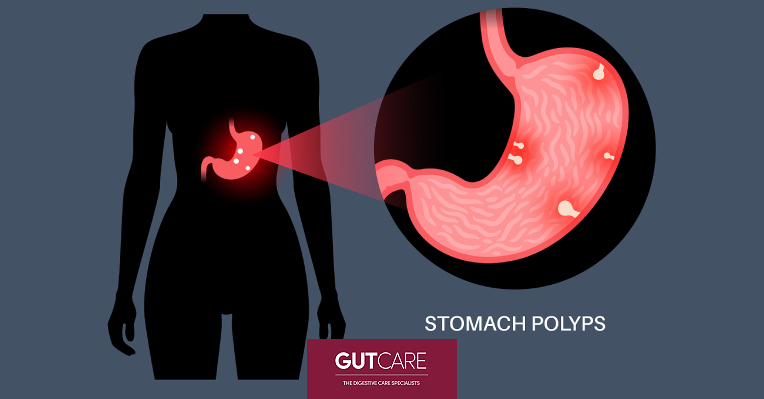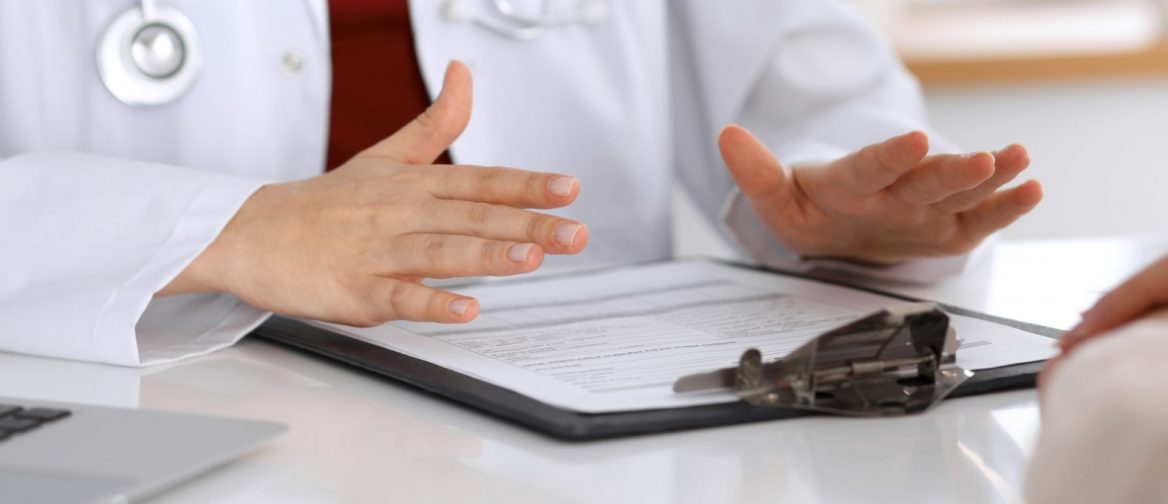Gastric Polyps 101: Knowing This “Silent” Stomach Condition

Gastric polyps, sometimes called stomach polyps, refer to small nodules or cellmasses that develop on the inner lining of your stomach. They are fairly common but do not exhibit any particular symptoms or signs.
Gastric polyps are often mostly discovered during a typical gastroenterology visit when the gastroenterologist is examining you for other reasons. While most gastric polyps do not develop further to be cancerous, there are certain rare types that increase your risk of developing gastric cancer.
Known symptoms of gastric polyps
Gastric polyps generally do not exhibit any initial symptoms before detection. However, as the polyp grows in size, it can result in ulcers or sores developing on its surface. In rare cases, the enlarged polyp may even block the opening between your small intestine and stomach. In both cases, some of the symptoms that may be warning signs of a developing gastric polyp include:
- Anaemia
- Bloody stool
- Nausea and vomiting symptoms
- Tenderness or pain when pressing the abdominal region
It is crucial that you make an immediate visit to a doctor when you experience any of the aforementioned signs and symptoms.
Causes of gastric polyps
Gastric polyps develop as a result of damage to your stomach lining. Some of the more common causes include:
- Chronic stomach inflammation: Commonly known as gastritis, it can result in the development of adenomas and hyperplastic polyps. Adenomas are the rarest form of gastric polyps but pose the most significant risk of becoming cancerous. Hence, they must be removed as soon as possible. Hyperplastic polyps, on the other hand, are less likely to become cancerous. However, those larger than 1cm could increase such risk.
- Familial adenomatous polyposis (FAP): This is a rare syndrome that is often inherited, and contributes to a predisposition towards cancer., People with FAP have an increased risk of polyps including both fundic gland polyps and also adenomas. Fundic gland polyps are benign and do not carry and cancerous risk. Adenomas on the other hand do carry a risk of becoming cancerous. Patients with suspected FAP should have their polyps removed for further evaluation.
- Regular use of specific stomach medications: For individuals who often take proton pump inhibitors to lower stomach acid levels, they run an increased risk of developing fundic gland polyps.
Diagnosis and treatment
Because most gastric polyps do not exhibit any prior signs and symptoms, they are often gone undetected until the polyps enlarge to a decent size. Unless you go for regular visits to your gastroenterologists, you might never know you have gastric polyps. Nevertheless, some of the procedures and tests employed to help diagnose gastric polyps include getting a tissue sample, also known as a biopsy, which involves removing a piece of the polyp during endoscopy and sending it to the lab for further analysis.
Once it has been confirmed you have gastric polyps, the type of treatment process depends on the kind of gastric polyps you have developed. For example:
- Tiny polyps that are not adenomas: Such polyps do not require any immediate treatment as they do not result in any symptoms and rarely become cancerous. Your gastroenterologist might suggest monitoring them periodically, only removing them if they start to grow or cause unfavorable symptoms.
- Large gastric polyps: Polyps larger than 1cm needs to be removed.
- Adenomas: These polyps have a higher chance of becoming cancerous. Hence, they are removed during endoscopy.
- Familial adenomatous polyposis(FAP): Patients with FAP should have polyps removed during endoscopy as they might become cancerous.
As mentioned earlier, gastritis is one of the more common causes of gastric polyps. Hence, if your gastritis is found to be caused by H. pylori infection, your gastroenterologist will likely first treat the immediate cause by administering a combination of medications, such as antibiotics. Usually, treating the H. pylori infection will cause the disappearance of hyperplastic polyps and any future recurrence.
After the treatment process, your gastroenterologist will recommend follow-up sessions to further monitor your stomach for recurring polyps.
Conclusion
Gastric polyps are generally benign, and are not a cause of concern. In rare instances where there is a risk of cancerous transformation such as in patients with FAP, they are easily treated by removing them. They rarely cause any symptoms but may be incidental findings during an endoscopy. We always recommend regular gastroenterology visits to ensure that your gut health is optimum.
At GUTCARE, we specialise in everything digestive health-related, treating a wide range of symptoms, such as IBS symptoms to heartburn symptoms. Take charge of your digestive health today!
Click here to make an appointment with us today!
Reference link:
https://www.mayoclinic.org/diseases-conditions/stomach-polyps/symptoms-causes/syc-20377992

HAVE AN ENQUIRY?
You may also send in an enquiry via our online form if you have questions pertaining to your visit or consultation.

FIND OUT MORE ABOUT OUR DOCTORS
Unsure of which doctor to speak to? Take a look at our doctors’ profile to find out more.




